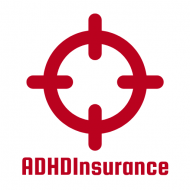As more individuals recognize the presence and impact of Attention Deficit Hyperactivity Disorder (ADHD) in adulthood, the question of insurance coverage for adult ADHD treatment becomes increasingly pertinent. While ADHD has traditionally been viewed as a childhood diagnosis, it is now understood that many symptoms persist into adulthood, significantly affecting personal and professional lives. This article aims to explore the nuances of insurance coverage for adult ADHD, helping individuals understand their options and the factors that influence their benefits.
Understanding Insurance Coverage for Adult ADHD Treatment
Insurance coverage for adult ADHD treatment can vary significantly depending on the provider and the specific policy. Generally, most health insurance plans are required to cover mental health services, which typically includes ADHD treatments. These treatments may encompass assessments, therapy, and medication prescribed by qualified healthcare professionals. However, the extent of coverage can differ based on state regulations, the insurance provider’s policies, and whether the treatment is delivered in-network or out-of-network.
Additionally, some insurance companies may impose certain limitations on coverage for adult ADHD, such as requiring a formal diagnosis from a licensed psychiatrist or psychologist. This diagnostic requirement ensures that the treatment aligns with medical necessity criteria, which varies by insurer. For adults seeking treatment, it is crucial to thoroughly review their insurance policy to understand the specifics of coverage, including any potential copayments, deductibles, or caps on the number of therapy sessions.
Key Factors Influencing Coverage for ADHD Services
Several factors can influence whether adult ADHD treatment is covered by insurance. One major consideration is the classification of ADHD within the Diagnostic and Statistical Manual of Mental Disorders (DSM). As ADHD is recognized as a legitimate mental health disorder, many insurers are more inclined to cover treatments associated with it. However, differences in how insurers interpret medical necessity can lead to inconsistencies in coverage, particularly for adult diagnoses which may not always be as straightforward as those for children.
Moreover, the type of treatment sought can significantly impact insurance coverage. For instance, medication management may be treated differently from psychotherapy or behavioral therapy. Insurers might cover certain medications but impose restrictions on the number of therapy sessions per year. Additionally, the qualifications of the practitioner providing the treatment can also affect coverage; services rendered by licensed psychologists may be reimbursed differently than those provided by social workers or counselors. Understanding these nuances is essential for adults navigating their ADHD treatment options and seeking financial support through insurance.
In conclusion, understanding insurance coverage for adult ADHD treatment requires careful consideration of policy specifics, state regulations, and the treatment modalities being pursued. As the awareness of adult ADHD continues to grow, so does the need for comprehensive and equitable coverage by insurance providers. Individuals seeking treatment should educate themselves about their rights and options under their insurance plans, ensuring they receive the necessary support for managing their condition effectively.
Dr. Jonathon Preston is a respected mental health specialist dedicated to helping individuals overcome challenges. With advanced training in psychology and decades of experience in the mental health field.
